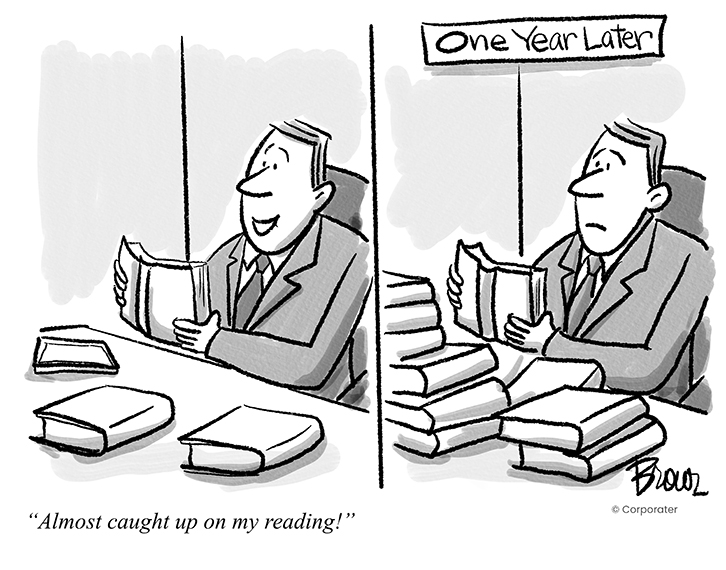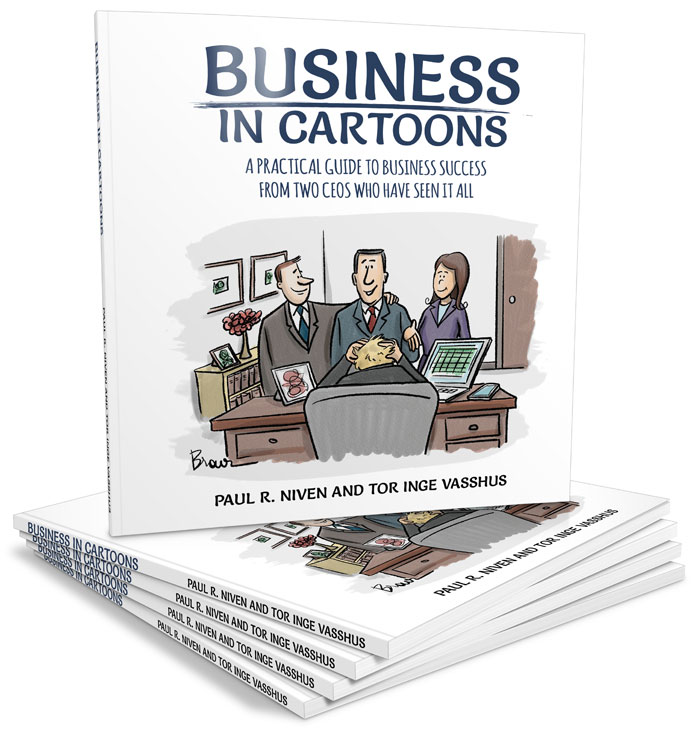
Paul recently heard a TV executive say that between broadcast networks, cable, and streaming outlets there are over five hundred scripted shows running in the United States right now. Over five hundred! How are we supposed to keep up with them? Every time we chat with friends, a new show will surface in the conversation. “Have you seen …?” “No,” we’ll reply. “How about …?” Again, the inevitable answer is, “No.” How could we? There are over five hundred and only so many hours in the day.
The frightening thing is that five hundred actually represents a relatively reasonable number when you compare it to the literal avalanche of interesting books (whether business, fiction, biography, etc.), articles, blog posts, and so on that is published daily and scream for our attention. As a manager or leader, it’s critical that you stay current on the latest trends in not only your own industry, but business in general. This is especially the case now — an exciting time in the management field with novel insights being gleaned from emerging disciplines such as neuroscience, behavioral economics, and many others. To take advantage of the findings you must first, of course, consume the content. Although it’s ultimately a wise investment, in the short term it places yet another demand on your scarcest resource — time.
So how do we keep up? The answer is to be more discriminating before, during, and after you read. Here are three tips to get you started:
- Focus on purpose
Before you commit to reading something, ask yourself about the purpose of doing so. “Why should I read this particular item right now?” The more specific you are when answering the question, the better. Dig deep to determine whether reading it will help you with a current issue or challenge, or generally improve your professional or personal life in some way. We know what you’re thinking — reading is its own reward. And that’s true — to a point. However, given the mountains of material we all need to get through in the run of a day, it pays, and is ultimately more rewarding, to only read what holds potential value for you at the moment. If it doesn’t have a purpose, toss it! - Track the value add
If you’ve found something that passes the purpose test, be sure to keep that value in mind as you’re reading. In fact, you may want to actually write it on the first page to remind yourself why you’ve made this substantial investment. As you read, return to that statement of purpose frequently to put the material in context and ensure you’re getting as much out of the text as possible. Taking handwritten notes while reading will also pay extensive dividends in understanding and application. - Apply what you’ve learned quickly
One of the best ways to do that is through business guru Stephen Covey’s process of “Third-Person Teaching.” Share what you read with others, conveying the key points and what you personally gained from them. If the reading is professional in nature, consider starting a book club or “lunch and learn” to discuss important topics and how they could be applied in your organization. Or, if you feel the topic has immediate relevance, discuss it at your next team meeting and challenge the group to determine how you could apply the principles in a meaningful and effective way.
Hopefully you find these tips helpful. There is more we could say on the topic, but we have to go. Just heard about a really good new TV show!

